Cost of living: Bethesda hydro scheme cuts electricity bills by 25%
- Published
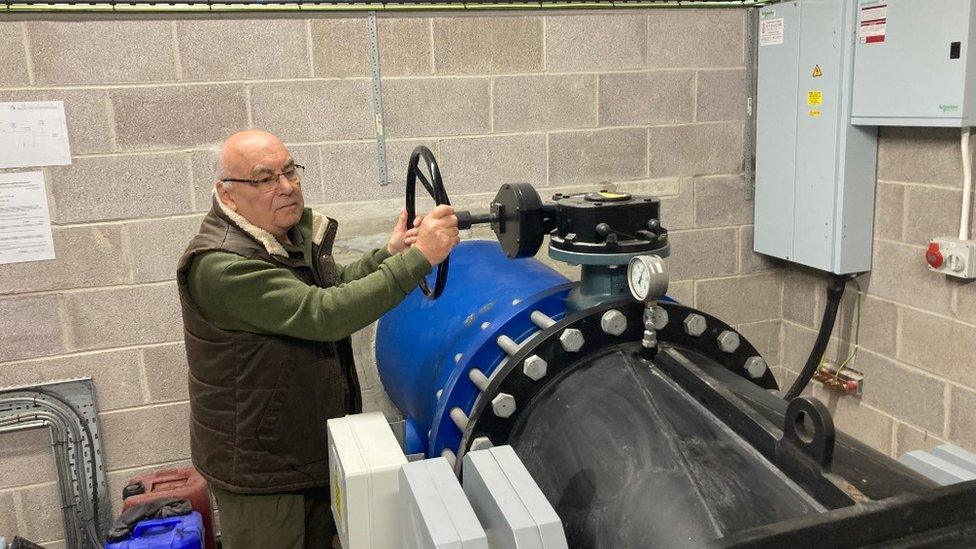
Residents such as Gareth Cemlyn Jones are helping to generate their own power
Energy bills are a worry right now, but people in one village are slashing their bills by using green technology.
Some residents in the Ogwen Valley, in Gwynedd, joined an energy club which uses a hydro-electric scheme.
As a result, they get electricity for 8p a unit at certain times of day - instead of 34p a unit.
A separate scheme sells excess power back to the grid, funding grants for local charities and fitting solar panels in the area.
The Ogwen Valley is one of several places in Wales with community energy projects.
As bills rise, residents said they appreciated it more than ever.
How do community energy projects work?
About 140 homes in the area are part of a club called Energy Local along with the National Trust, which owns a hydro-electric turbine nearby.
The homes are not plugged directly into the turbine - they get their power from the National Grid, the same as everyone else.
But the energy club members' use is matched to the amount of power the turbine is generating.
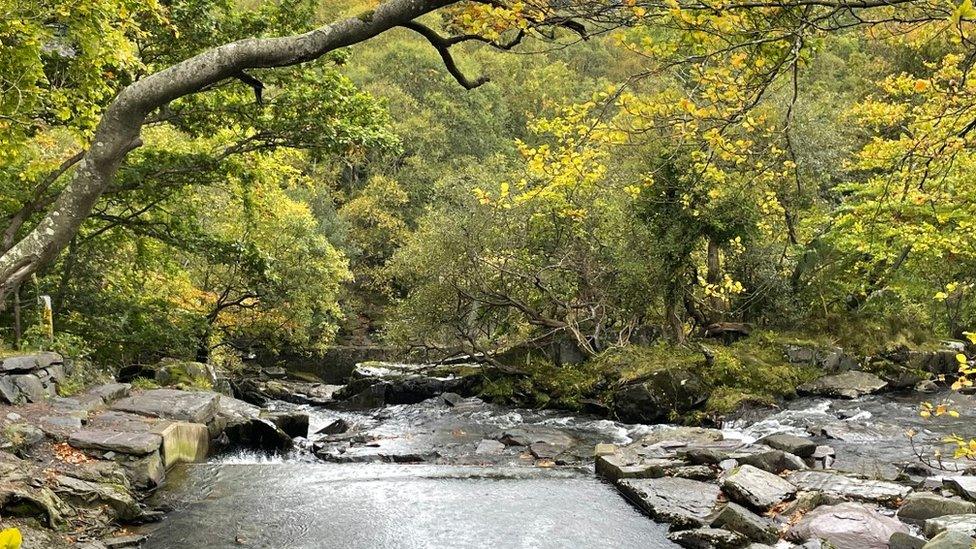
A weir on the River Ogwen helps to create the power
As long as residents don't use more power than the turbine produces, their bills stay low.
They are charged just under 8p per kW/h in the night, and 16.5p per kW/h between the hours of 16:00 to 20:00.
Under the UK government's price cap scheme, suppliers can charge up to 34p per kWh.
The costs are kept low because the power is used locally and does not travel for miles across the National Grid.
Smart meters measure what residents use and excess electricity is charged at a higher rate.
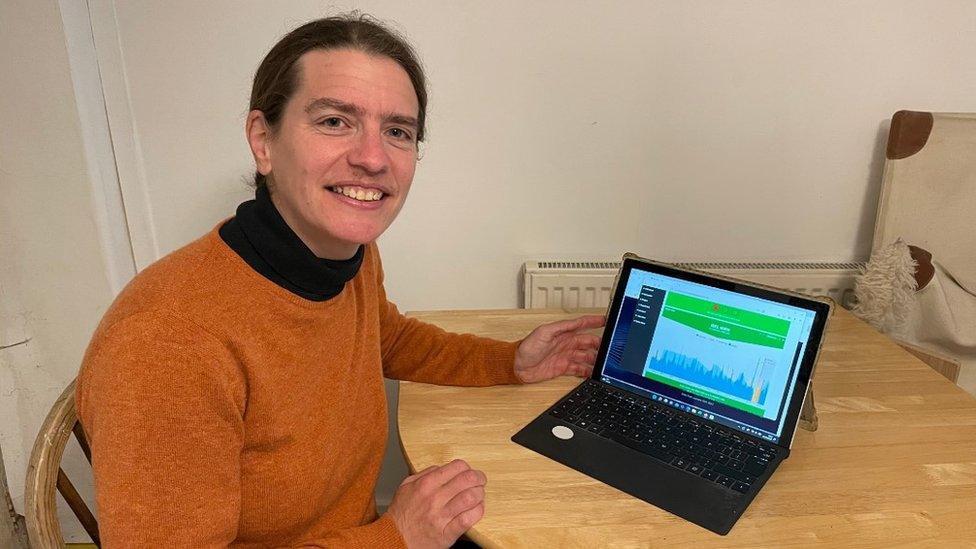
Dr Mary Gillie was one of the people who helped launch the scheme
Dr Mary Gillie is one of the founders of the scheme and receives her electricity from it.
She said: "People are quite relieved about the prices they're paying, that they have got a better deal.
"But Energy Local is also about using less power where you can - and using it in the evenings when demand is less, but the hydro-electric turbine is still generating.
"If you're not exporting a whole load of power at one point in the day and importing it at another time of the day, then everything becomes cheaper to run.
"We're trying to create a win-win situation which helps on a national scale, but also on a local scale as well."
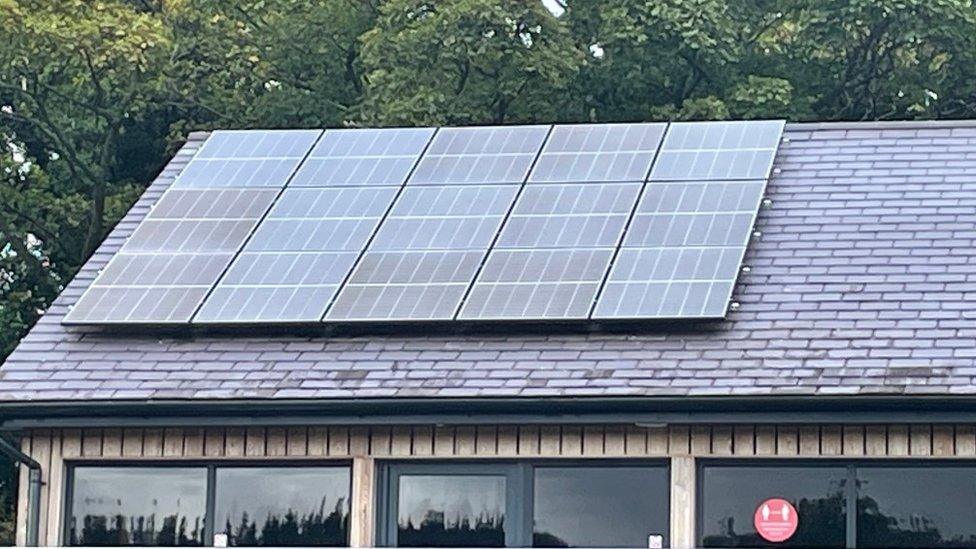
Clwb Rygbi Bethesda is one of the local organisations to benefit
Energy Local started in Bethesda in 2016, but now runs 15 similar clubs in Wales including Brecon, Cardigan, Corwen, Crickhowell, Llandysul and Machynlleth.
Also in the Ogwen Valley, a separate hydro-electric turbine has been installed by a community company called Ynni Ogwen.
It sells its power to the National Grid, and the money raised is put back into the local area.
Over the past five years, it has raised enough money to provide tens of thousands of pounds in grants to community groups, including a local veterans' organisation, a food bank and local sports clubs.
Chairman Gareth Cemlyn Jones said: "I use the phrase 'empowering people' as a bit of a play on words, but this really does do that.
"This is all about people in the community making use of something which is on their doorstep - the power of the water in the river.
"It's brought people together - the community built this, and the community own it.
"There is fantastic community spirit in this area, and that comes through in the way that volunteers will clean leaves and debris from the screens that protect the pipe down to the turbine."
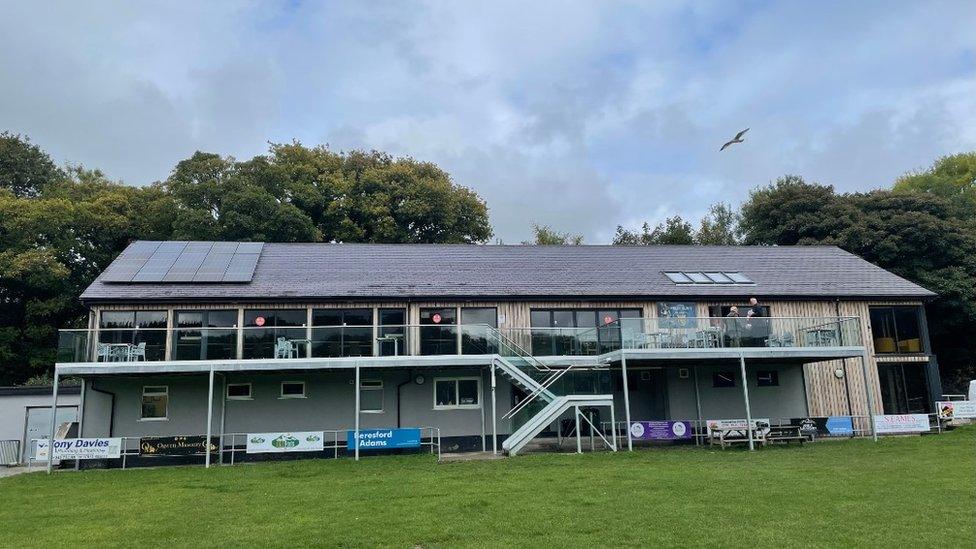
The scheme is saving Clwb Rygbi Bethesda money
Ynni Ogwen was set up by Partneriaeth Ogwen, a company set up to organise regeneration projects in the area around Bethesda, Llanllechid and Llandygai.
Money from Ynni Ogwen also pays for solar panels on community buildings, including the roof of Clwb Rygbi Bethesda, generating more renewable electricity.
Will Sandison, director of rugby at the club, said: "Our energy costs have gone up like everyone else.
"But having the solar panels is helping keep them under control, and will certainly help us keep our head above water."

WHO DO WE THINK WE ARE?: Huw Edwards explores the source of Wales' identity
WALES ON AIR: A unique concert reflecting life in Wales

- Published2 March 2021
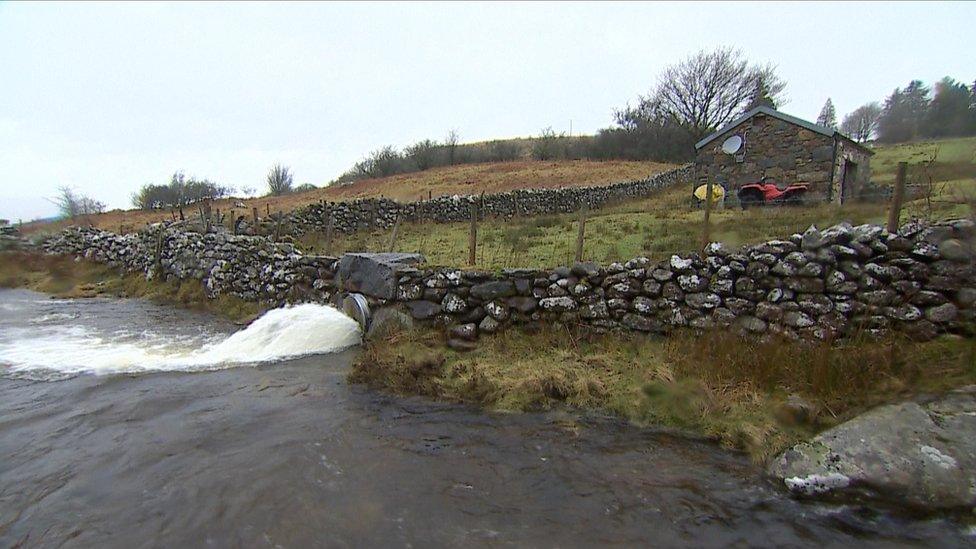
- Published25 February 2021
